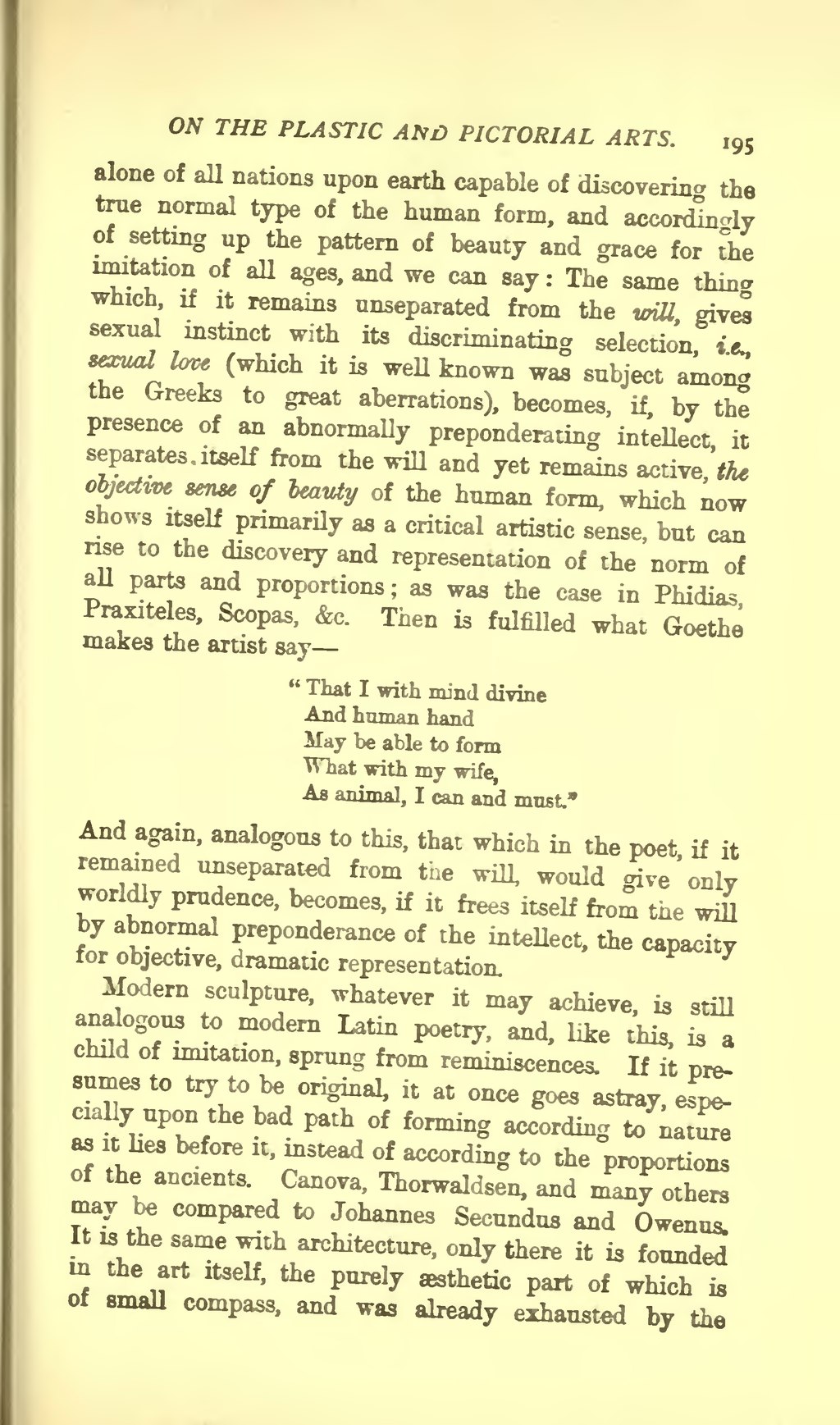alone of all nations upon earth capable of discovering the true normal type of the human form, and accordingly of setting up the pattern of beauty and grace for the imitation of all ages, and we can say: The same thing which, if it remains unseparated from the will, gives sexual instinct with its discriminating selection, i.e., sexual love (which it is well known was subject among the Greeks to great aberrations), becomes, if, by the presence of an abnormally preponderating intellect, it separates itself from the will and yet remains active, the objective sense of beauty of the human form, which now shows itself primarily as a critical artistic sense, but can rise to the discovery and representation of the norm of all parts and proportions; as was the case in Phidias, Praxiteles, Scopas, &c. Then is fulfilled what Goethe makes the artist say –
"That I with mind divine
And human hand
May be able to form
What with my wife,
As animal, I can and must."
And again, analogous to this, that which in the poet, if it remained unseparated from the will, would give only worldly prudence, becomes, if it frees itself from the will by abnormal preponderance of the intellect, the capacity for objective, dramatic representation.
Modern sculpture, whatever it may achieve, is still analogous to modern Latin poetry, and, like this, is a child of imitation, sprung from reminiscences. If it presumes to try to be original, it at once goes astray, especially upon the bad path of forming according to nature as it lies before it, instead of according to the proportions of the ancients. Canova, Thorwaldsen, and many others may be compared to Johannes Secundus and Owenus. It is the same with architecture, only there it is founded in the art itself, the purely æsthetic part of which is of small compass, and was already exhausted by the
